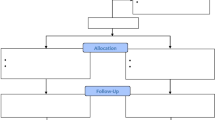Summary
More than 60% of patients with chronic renal failure also have cardiovascular diseases, and they therefore are in need of invasive diagnostic procedures and in many cases heart surgery. Patients with known moderate renal insufficiency have a high risk of severe complications and mortality after heart surgery. In order to prevent the deterioration of renal function (acute renal failure, ARF) after coronary angiography or heart surgery, many approaches have been tested. Both effective and ineffective procedures are discussed in this review. The effective procedures include: 1) increased oral fluid intake and infusion of normal saline solution (target CVP: 8–12 mmHg), 2) sufficient oxygenation (target HCT >30%), if necessary tranfusion of red cells already before intervention, 3) N-acetylcysteine (ACC) 2–4×600 mg orally, first intake 2 hours before intervention, 4) continue aspirin until the day of surgery/intervention and restart aspirin within 24–48 hours post surgery, 5) in case of preexisting renal insufficiency (S.-creat.: >2.0 mg/dl, creat.cl. <60 ml/min) hemofiltration (exchange volumen 1 l/h) or bicarbonate-hemodialysis starting immediately after intervention/surgery. In contrast to these effective renoprotective procedures, loop diuretics such as furosemide are detrimental and renal-dose dopamine as well as the dopamine-receptor agonist fenoldopam are ineffective. The antioxidant ascorbic acid as compared to ACC only provides a marginal beneficial effect in preventing contrast-induced nephropathy. Taken together, the most important nephroprotective procedures are volume supplementation and oxygenation starting already 4–6 hours before intervention. In patients with known renal insufficiency (S.-creat. >2.0 mg/dl) volume status is best controlled when hemofiltration or bicarbonate hemodialysis are applied.
Zusammenfassung
Patienten mit chronischer Niereninsuffizienz haben zu mehr als 60% auch kardiovaskuläre Erkrankungen, die einer invasiven Diagnostik und Therapie bedürfen. Patienten mit vorbestehender Niereninsuffizienz haben nach herzchirurgischen Operationen ein deutlich erhöhtes Komplikations- und Mortalitätsrisiko. Zur Prävention eines postinterventionellen Nierenversagens (ANV) nach Koronarangiographie und Koronarchirurgie wurden zahlreiche Therapieansätze untersucht, die in dieser Arbeit diskutiert werden. Zu den effektiven Ansätzen in Bezug auf Vermeidung eines ANV und Verbesserung des Überlebens zählen: 1) intensivierte Volumengabe oral plus Infusion von isotoner Kochsalzlösung (Ziel ZVD 8–12 mmHg), 2) ausreichende Oxygenierung (Ziel-HKT >30%), eventuell schon Transfusion vor der Intervention, 3) N-Acetylcystein (ACC) 2- bis 4-mal 600 mg oral, 1. Einnahme 2 h vor der Intervention, 4) Acetylsalicylsäure (ASS) prä-OP nicht absetzen, rascher Wiederbeginn post-OP innerhalb von 24 bis 48 h nach Intervention, 5) bei vorbestehender stärkerer Niereninsuffizienz (S.-Creat.: >2,0 mg/dl, Creat.-Cl. <60 ml/min) Hämofiltration (Austauschvolumen 1 l/h) oder Bicarbonatdialyse, Beginn direkt nach Intervention. Dagegen haben sich Schleifendiuretika als schädlich, Dopamin in „Nierendosis“ und auch der Dopaminrezeptor- Agonist Fenoldopam als ineffektiv zur Nephroprotektion herausgestellt. Ascorbinsäure (Vitamin C) als Antioxidans hat im Vergleich zu ACC einen nur marginalen protektiven Effekt in der Vermeidung der kontrastmittelinduzierten Nephropathie. Wichtigste nephroprotektive Maßnahmen sind eine ausreichende Hydratation und Oxygenierung bereits vor der Angiographie oder Operation, bei vorbestehender Niereninsuffizienz (S.-Creat. >2,0 mg/dl) ist die periinterventionelle Volumensteuerung durch Hämofiltration oder Bicarbonatdialyse vorteilhaft.
Similar content being viewed by others
Literatur
Bader BD, Berger ED, Heede MB et al (2004) What is the best hydration regimen to prevent contrast media-induced nephrotoxicity? Clin Nephrol 62:1–7
Bove T, Landoni G, Calabro MG et al (2005) Renoprotective action of fenoldopam in high-risk patients undergoing cardiac surgery: a prospective, double-blind, randomised clinical trial. Circulation 111:3230–3235
Burns KE, Chu MW, Novick RJ et al (2005) Preoperative N-acetylcysteine to prevent renal dysfunction in high-risk patients undergoing cabg surgery: a randomised controlled trial. JAMA 294:342–350
Frei U, Schober-Halstenberg HJ (2006) Nierenersatztherapie in Deutschland. Bericht über Dialysebehandlung und Nierentransplantation in Deutschland 2004/2005
Gerrah R, Ehrlich S, Tshori S, Sahar G (2004) Beneficial effect of aspirin on renal function in patients with renal insufficiency postcardiac surgery. J Cardiovasc Surg 45:545–550
Gerrah R, Elami A, Stamler A et al (2005) Preoperative aspirin administration improves oxygenation in patients undergoing coronary artery bypass grafting. Chest 127:1622–1626
Herzog CA, Ma JZ, Collins AJ (2002) Comparative survival of dialysis patients in the United States after coronary angioplasty, coronary artery stenting, and coronary artery bypass surgery and impact of diabetes. Circulation 106:2207–2211
Lassnigg A, Donner E, Grubhofer G et al (2000) Lack of renoprotective effects of dopamine and furosemide during cardiac surgery. J Am Soc Nephrol 11:97–104
Mangano DT: Multicenter Study of Perioperative Ischemia Research Group (2002) Aspirin and mortality from coronary bypass surgery. N Engl J Med 347:1309–1317
Marenzi G, Lauri G, Campodonico J et al (2006) Comparison of two hemofiltration protocols for prevention of contrast-induced nephropathy in high-risk patients. Am J Med 119:155–162
Marenzi G, Marana I, Lauri G et al (2003) The prevention of radiocontrast-agent-induced nephropathy by hemofiltration. N Engl J Med 349:1333–1340
Mehta RL, Pascual MT, Soroko S et al (2002) Diuretics, mortality, and nonrecovery of renal function in acute renal failure. JAMA 288:2547–2553
Misra D, Leibowitz K, Gowda RM et al (2004) Role of N-acetylcysteine in prevention of contrast-induced nephropathy after cardiovascular procedures: a meta-analysis. Clin Cardiol 27:607–610
Nash K, Hafeez A, Hou S (2002) Hospital-acquired renal insufficiency. Am J Kidney Dis 39:930–936
Sadeghi HM, Stone GW, Grines CL et al. (2003) Impact of renal insufficiency in patients undergoing primary angioplasty for acute myocardial infarction. Circulation 108:2769–2775
Spargias K, Alexopoulos E, Kyrzopoulos S et al (2005) Ascorbic acid prevents contrast-mediated nephropathy in patients with renal dysfunction undergoing coronary angiography or intervention. Circulation 110:2837–2842
Rivers E, Nguyen B, Havstad S et al (2001) Early goal-directed therapy in the treatment of severe sepsis and septic shock. N Engl J Med 345:1368–1377
Author information
Authors and Affiliations
Corresponding author
Rights and permissions
About this article
Cite this article
Lonnemann, G. „Optimale“ Vorbereitung des nierenkranken Patienten auf die Herzoperation. Clin Res Cardiol Suppl 2 (Suppl 1), S39–S45 (2007). https://doi.org/10.1007/s11789-006-0036-7
Issue Date:
DOI: https://doi.org/10.1007/s11789-006-0036-7
Key words
- Heart surgery
- acute renal failure
- chronic renal failure
- nephroprotection
- co-morbidity
- mortality
- volume status
- hemodialysis
- aspirin
- N-acetylcysteine




